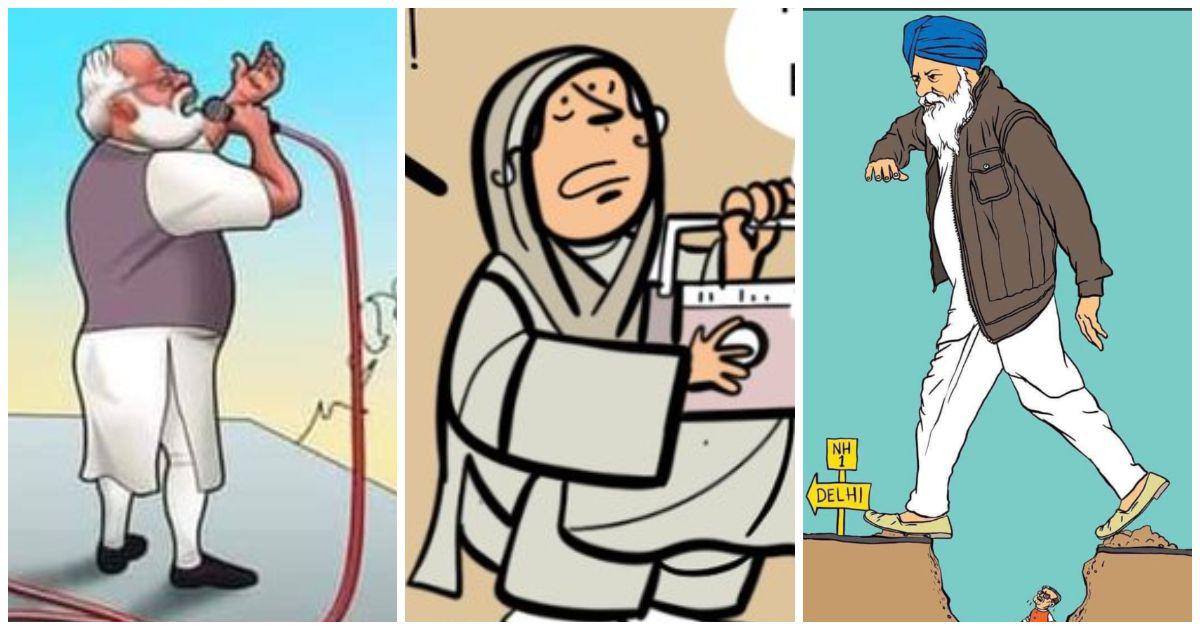
‘Delhi Chalo’ explainer- What the farmers’ protest is all about
‘Delhi Chalo’ explainer-What the farmers’ protest is about. In response to the ‘Delhi Chalo’ call against the agri-marketing laws enacted at the Centre in September, thousands of farmers have reached the national capital on their tractor trolleys and other vehicles.
It was not clear on Saturday morning whether they would agree to move to the Burari Ground on the outskirts of the city, where the police said they could continue protesting. In the center of Delhi, many demonstrators were seeking a better venue. The protest was initially supposed to be on November 26 and 27.
A look at the protests so far:
Day 1: thousands of farmers crossed from Punjab to Haryana on Thursday. The Haryana Police attempted to avoid them at border points, using water cannons and teargas. But they were allowed in later. As it went through BJP-run Haryana, there were skirmishes with police at other points as well as on the highway to Delhi. Near Panipat, a large number of protesters were camping for the night.
Day 2: Demonstrators gathered at the border of Delhi at Tigri and Singhu. To stop them from smashing through barricades, including sand-laden vehicles, the police used teargas and water cannons. They offered to let them into the town in the evening and to continue their protest at the Burari Site. But several seemed hesitant.
Day 3: The standoff on the Delhi border continued on Saturday morning. From Punjab and Haryana, more farmers were making their way.
What farmers fear:
farmers’ unions in Punjab and Haryana say the minimum support price (MSP) scheme will be abolished by recent laws enforced at the Centre. They claim that large corporate houses will dictate conditions over time and farmers will end up getting less for their crops. Farmers worry that they will not get a guaranteed price for their crops with the virtual disbanding of the mandi scheme, and the ‘arthiyas’ — commission agents who also pitch in with loans for them — will be out of business.
Their demands: Withdrawal of the three laws that deregulate the selling of their crops is the main demand. The farmers’ unions were also willing to settle for a legal promise that the MSP scheme would proceed, preferably by amending the laws.
They are also urging that the proposed Electricity (Amendment) Bill 2020 be withdrawn, fearing that it would lead to the end of subsidized electricity. Farmers say laws against the burning of stubble do also not apply to them. Key players: The All India Kisan Sangharsh Coordination Committee gave the ‘Delhi Chalo’ call. Many other organizations were supported, including Rashtriya Kisan Mahasangh and factions of the Bharatiya Kisan Union (BKU).
The march is being conducted under Samyukta Kisan Morcha’s banner. Among the participants are the Rashtriya Kisan Mahasanghathan, Jai Kisan Andolan, All India Kisan Mazdoor Sabha, Krantikari Kisan Union, Bharatiya Kisan Union (Dakaunda), BKU (Rajewal), BKU (Ekta-Urgahan), and BKU (Chaduni).
Most of the demonstrators are from Punjab, but there is also a large number from Haryana. There has been widespread support from Uttar Pradesh, Rajasthan, Madhya Pradesh, and Uttarakhand for the ‘Delhi Chalo’ rally.
Earlier protests: In intermittent protests, sit-ins and blocked roads were held before “Delhi Chalo” farmers in Punjab and Haryana. Punjab farmers unions then declared a “rail roko” agitation that lasted for two months leading to a suspension of trains to the state and shortages in crucial areas, including coal for thermal power stations.
The unions eased the agitation at one stage to let goods trains pass through but the Railways maintained that either or none of the freight and passenger trains would be run by them. The Farmers’ Produce Trade and Commerce (Promotion and Facilitation) Act, 2020, the Price Guarantee and Farm Services Act, 2020, the Farmers’ (Empowerment and Protection) Agreement, and the Necessary Commodities (Amendment) Act, 2020.
Bypassing bills meant to “negate” their effect in the state, the Congress-majority Punjab Assembly responded to these central laws. However, the Punjab Bills are still awaiting the state government’s approval.
What the Centre says The government of Narendra Modi says the new laws will give farmers more choices for selling their crops and getting better prices. It has ensured that there is no attempt to bring an end to the MSP scheme, and it is not alluded to in the new Acts.
The Centre had invited representatives of more than 30 farmers’ unions to meet with Union Minister for Agriculture Narendra Singh Tomar on 3 December before the Delhi Chalo agitation began. The previous November 15 meeting had remained inconclusive.

Leave your comment